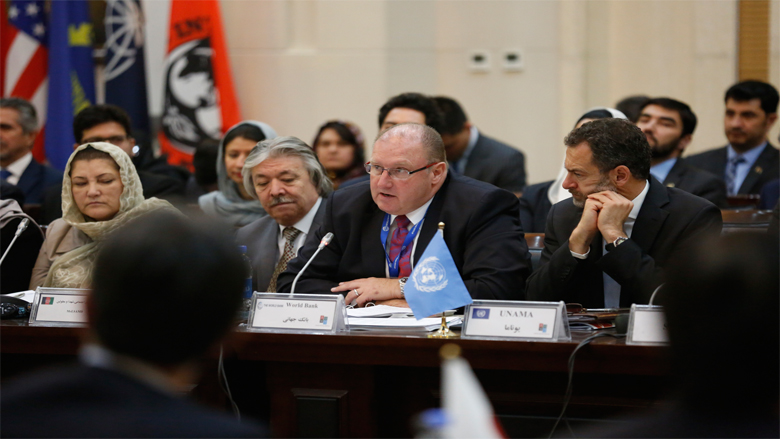The presentation titled "Afghanistan: an agenda for catalyzing inclusive growth" highlighted a number of challenges for growth in the short-term, including conflict and fragility and limited fiscal space. The current economic downturn calls for a combination of fiscal and policy reforms supporting domestic aggregate demand to boost growth. Key recommendations include:
- improve budget execution and reorient budget expenditures toward labor-intensive and community-based programs that directly reach the population with the greatest needs and, most likely, the highest marginal propensity to consume;
- increase and improve quality of spending for basic service delivery;
- promote private investment and strengthen confidence of business community by forcefully implementing reforms and measures to reduce risks and costs of doing business;
- identify and selectively promote opportunities for import substitution (without deteriorating prices) and exports;
- move from narrowly focused revenue collection to broader revenue mobilization by expanding the tax base.
At the same time, the World Bank underscored the importance of prioritizing investments in realizing Afghanistan’s long-term growth potential. It pointed out that:
- investments—in institutions and in high-potential areas—will be critical;
- agriculture and agri-business, human capital and extractives offer the greatest promise;
- public investments—particularly for connectivity and energy infrastructure—will have to be clearly prioritized and carefully selected; and
- given the financing constraints, crowding-in private capital—through reforms, private-public partnerships and innovative financial solutions—will be tremendously important.
Harnessing growth potential from these areas, however, would require significant public investment—a difficult task under the tight financing constraint. This warrants heightened efforts to crowd-in private capital, particularly for infrastructure investment, and to improve the quality of investment through a more robust Public Investment Management process.
The presentation pointed out that fiscal and economic measures would only have limited impacts without continued efforts to enhance state effectiveness. The government needs to ramp up its reform to enhance its institutional capacity in planning, coordination, and implementation, and to strengthen anti-corruption efforts and civil service reform.
The presentation also emphasized the importance of concerted efforts of international partners to support Afghanistan in navigating difficult fiscal challenges towards inclusive growth, by meeting Brussels aid commitments and delivering more aid on budget.

